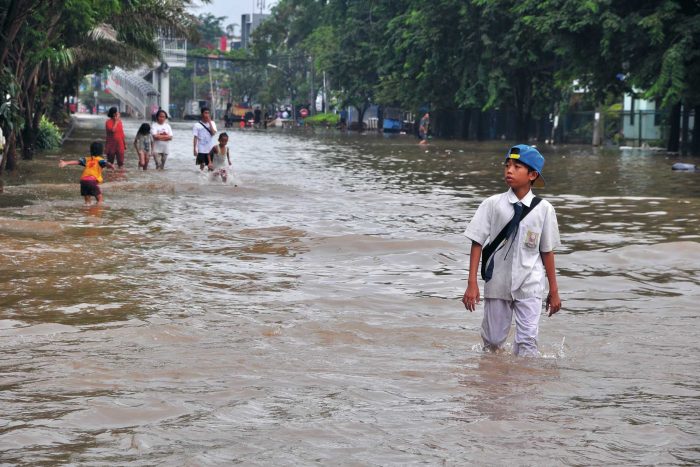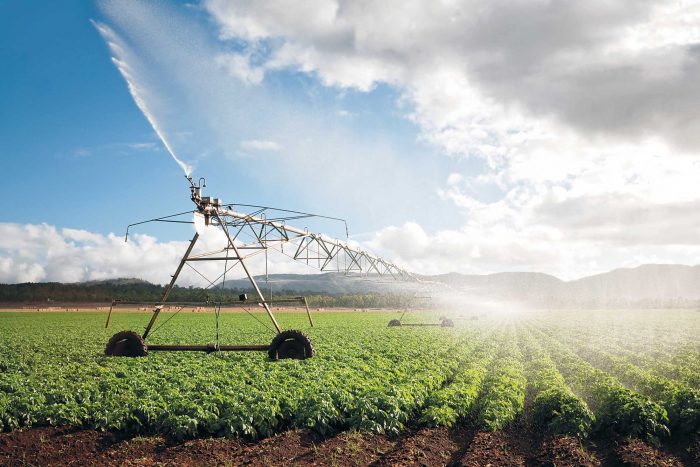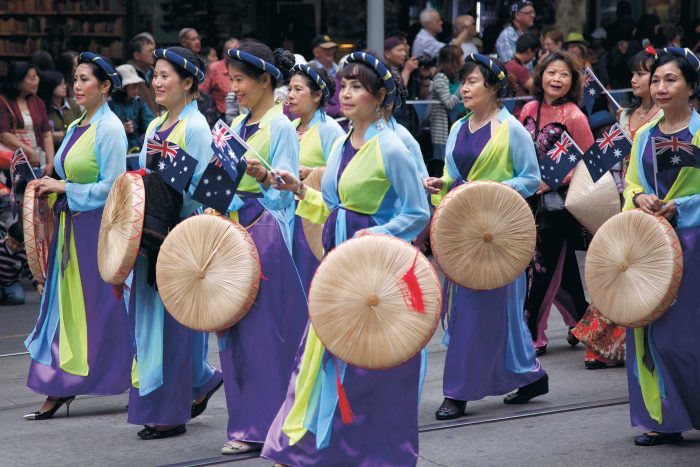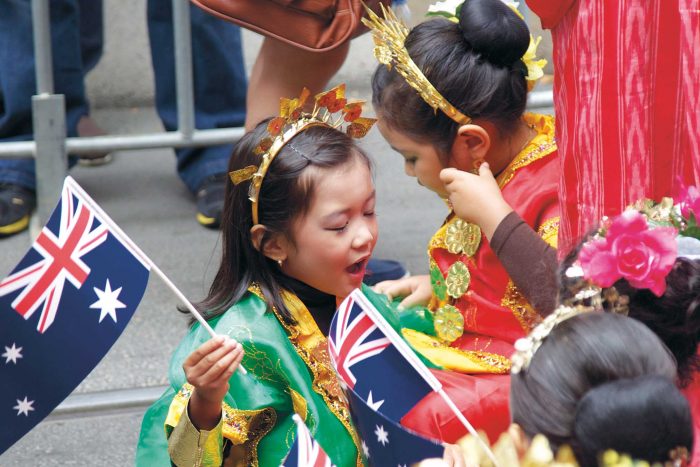How Japan and Australia Can Fill Asia’s Security Gap
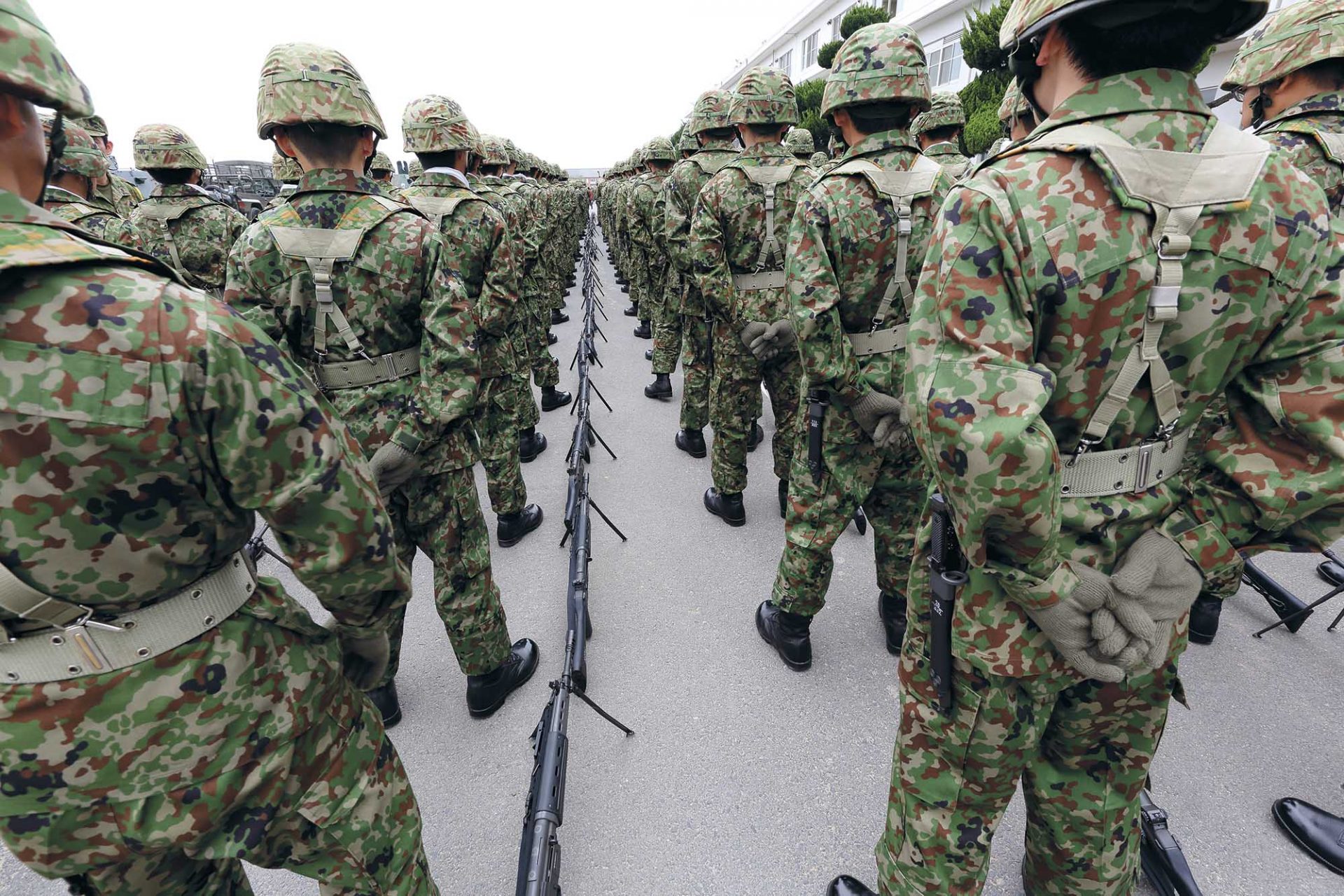
Japan and Australia are “all-weather friends” who share many common interests. If this is the case, one should expect that defence and security cooperation between Japan and Australia would become even stronger as the regional security environment becomes increasingly risky and unpredictable.
The victory of the US President Donald Trump, and his seemingly nationalistic and isolationistic remarks during the election campaign, raises serious concerns about the credibility of the US military commitment to Asia among US regional allies, including Japan and Australia. Some think that the Trump administration’s criticism of “free-riding” and an increasing call for greater “burden-sharing” will cause friction between the US and its allies, making alliance management much more difficult than before.
Others argue that, while the US-led hub and spokes alliance system may survive, the post-war liberal international order will be significantly weakened by the emergence of the new US President who emphasises “America first” doctrine and a decrease in its commitment to liberal values. The Trump administration’s protectionist trade policy, demonstrated by the withdrawal from the Trans Pacific Partnership (TPP), inflates such concerns.
In response to these concerns, Trump and his colleagues have worked hard to reassure America’s Asian allies that the new administration will further push America’s military commitment to Asia through strengthening alliances, increasing the number of naval ships and repelling defense sequestration. Both Japanese and Australian governments have welcomed the reassurances, stressing the continuity of strong alliance relations with the new US administration.
Nevertheless, there remains deep anxiety in both Tokyo and Canberra about the credibility of the new US administration. If the Trump administration mismanages alliances and fails to implement the promise to enhance military commitment to Asia, this could easily trigger further mistrust in Japan and Australia and as a result, trilateral security cooperation between these countries may become hard to manage.
In Australia, there has already been growing anti-America or anti-alliance feelings since the Trump victory. A number of Australian intellectuals – not only liberals or alliance skeptics, but also pro-alliance conservatives – advocate that Australia should keep its distance from the US under the Trump administration or at least seek a more independent foreign and defence posture.
While complete independence from the US or “bandwagoning” to China is highly unlikely, the wrong US Asia policy could fuel alliance skeptics in Australia and push the Australian government to take a more neutral stance between the US and China on some key issues such as South China Sea and regional economic institutions. Indeed, after Trump’s difficult phone call with Prime Minister Turnbull in early February, there have been growing voices arguing that Australia needs to focus more on China in a Donald Trump world. A more neutral Australian stance between the US and China would increase the US criticism of security “free-riding” by Australia, and create further distance between Washington and Canberra.
Compared to Australia, Japan’s initial response to the new US President was a sort of “cautious optimism”. After meeting with president-elect in New York, Japanese Prime Minister Shinzo Abe said that Trump was a “trustworthy partner”, and reportedly pointed out the difference in Trump’s attitude to Japan before and after the election. Some also speculate that Abe has a personal chemistry with Trump and can get along with him better than former President Barack Obama, who was known as a businesslike person. The success of the first meeting between Abe and Trump of February 10-12, including their 27 holes round of “golf diplomacy”, proved such a view was basically correct at least in the short-term.
However, it is too early to conclude that a strong US-Japan alliance will continue due to the good personal relationship between two leaders. Japan’s optimism could quickly decline once it sees any symptom of changes in US Asia policy under the Trump administration. Specifically, there remain deep concerns in the Japanese policy community that the Trump administration could make a deal with China, such as allowing Chinese reclamation of artificial islands in the South China Sea in exchange for decreased Chinese exports to the US. Trump’s reportedly close relationship with the former US Secretary of State Henry Kissinger also causes such speculation.
Should such a “nightmare” be realised, Japan would seek more an independent defence posture in order to cope with growing threats from both China and North Korea. Yet Japan’s excessive independent foreign and defence posture could raise concerns of Japanese neighbours, including its potential ally South Korea, easily escalating tensions in Northeast Asian politics. If this is the case, an existing gap of strategic priorities and threat assessment between Japan and Australia – due to their different geostrategic circumstances – will likely expand. Japan’s relations with South Korea will also weaken, making it difficult to continue another important trilateral security cooperation between the US, Japan and South Korea.
On the other hand, too much exercise of power or coercion by the US under the banner of “peace through strength” could also trigger a conflict, causing bad effects not only on Japan-Australia relations, but on regional countries as a whole. As one expert argues, Trump’s pledge to impose a 45 per cent tariff on Chinese imports could “start a trade war, lead to a massive recession, eliminate millions of US jobs, and damage the economies of some close US allies”. Trump’s attempt to put the US ‘One China’ policy up for negotiation could also risk escalating US-China tensions unnecessarily, or damage US credibility if those policies are not actually implemented. Such a policy could also push leaders in both Japan and Australia into a difficult position, especially through provoking concerns about the entrapment in any US-led war against China, making bilateral and trilateral security cooperation more difficult to manage.
New momentum for cooperation
At the same time, the new US administration provides greater opportunities, as well as challenges, toward closer defence and security cooperation between Japan and Australia, and potentially involving the US. In particular, Trump’s greater call for burden-sharing from regional allies could encourage more active defence and security posture of both Japan and Australia, increasing opportunities for cooperation and coordination in regional and even global fields (just as Japanese and Australian contributions to the “global war on terror” resulted in closer defence and security cooperation between two countries during the 2000s). Indeed, there has been a growing voice in both Japan and Australia that these countries should do more in order to strengthen the alliance and keep the US military engagement in the region.
Such burdens should not necessarily be financial contributions to the alliance, such as defence budget increase or host-nation support for the US military. Rather than spending more money, Japan and Australia may revise and enhance their roles in their alliance relationship with the US not only bilaterally, but also regionally and globally. Japan and Australia could, for instance, step-up their defence engagement with Southeast Asia, including joint military training/exercises, capacity-building, and defence equipment cooperation with regional like-minded countries.
The Maritime Self Defense Force (MSDF) and the Australian Navy could also meet growing opportunities to work with the US Navy for maritime security not only in the South China Sea, but in the East China Sea or the Indian Ocean. Such cooperation became more likely after the introduction of Japan’s new security legislation, which enabled the SDF to cooperate with militaries of “foreign countries that have close relations with Japan” under more extensive circumstances.
Meanwhile, both Japan and Australia may accelerate their diversification of external partnerships in response to greater uncertainties under the Trump Presidency. While both countries, especially Japan, are fairly confident about the continuity of strong bilateral alliances with the US at least in the short term, they need to hedge against the future possibility of the transformation of international order from the current unipolar to more multipolar world. Indeed, it was such a strategic risk or uncertainty that encouraged Japanese and Australian policymakers to seek closer defence engagement between two countries in the early 1990s. Such a “dual hedging” strategy – hedging against the rise of China on the one hand, and hedging against the decreased US military commitment on the other – of Japan and Australia seemed to be increasingly relevant in that ever more unpredictable environment.
In Australia, regardless of whether people are pro-alliance or alliance skeptics, or whether they are conservatives or liberals, many support Australia’s deeper engagement with the region through expanding strategic partnership with like-minded countries, most notably Japan. Such a policy is thought to be important not only to counter common threats, but “to identify areas of common interest [among regional countries] and jointly seek to influence US thinking on these.”
Japan has also accelerated its regional engagement policy and diversification of its strategic partnership under the banner of “free and open Indo-Pacific strategy”, in which Australia is positioned as one of the most important partners. In essence, Japan and Australia are, as Prime Minister Turnbull recently stressed, “all-weather friends” who share many common interests under different circumstances. If this is the case, one should expect that defence and security cooperation between Japan and Australia would become even stronger as the regional security environment becomes increasingly risky and unpredictable.
Future tasks for cooperation
So what should Japan and Australia should do in order to maintain and strengthen the liberal international order in the region?
First and foremost, they should jointly encourage the US continuous commitment to liberal international order, especially in the Asia-Pacific region. Japan and Australia not only share interest in a strong US military presence in the region, but have common interests in open, liberal and institutional order in Asia-Pacific. Encouraging continuous US commitment to open economy, regional institutions, and international rules and norms is essentially important in this context. To do so, Japan and Australia may need to review their roles and responsibilities within the US alliances in order to gain greater leverage against the US.
Second, Japan and Australia should deepen and expand their defence and security cooperation both bilaterally and trilaterally with the US. Some key areas of cooperation include: military training/exercises and interoperability; information/ intelligence-sharing; missile defence; cyber and space security and; regional defence engagement, especially in South East Asia. If possible, Japan and Australia should review their joint declaration for security cooperation announced in March 2007, and establish a common strategy reflecting new security developments in the region.
Japan should also continue and accelerate its security reform, including the implementation of new security legislation, which came into effect in March 2016. Japan’s security reform and its normalisation (or international standardisation) have provided greater chances and opportunities for closer Japan-Australia security cooperation, as well as for the US-Japan alliance. If so, the Australian government should encourage Japan’s continuous efforts for security reform and if necessary, support its legal, institutional and operational development.
Finally, both Japan and Australia should seek to expand their cooperation with other regional like-minded democracies, especially South Korea and India. Such cooperation is useful not only to counterbalance against the growing Chinese influence, but to gain greater leverage to collectively influence on US policy to Asia. It is also important to prepare for and mitigate the impact of any future “strategic shocks”, including a sudden change of the US policy to the region. Japan and Australia can be the centre of such a network of regional cooperation.




